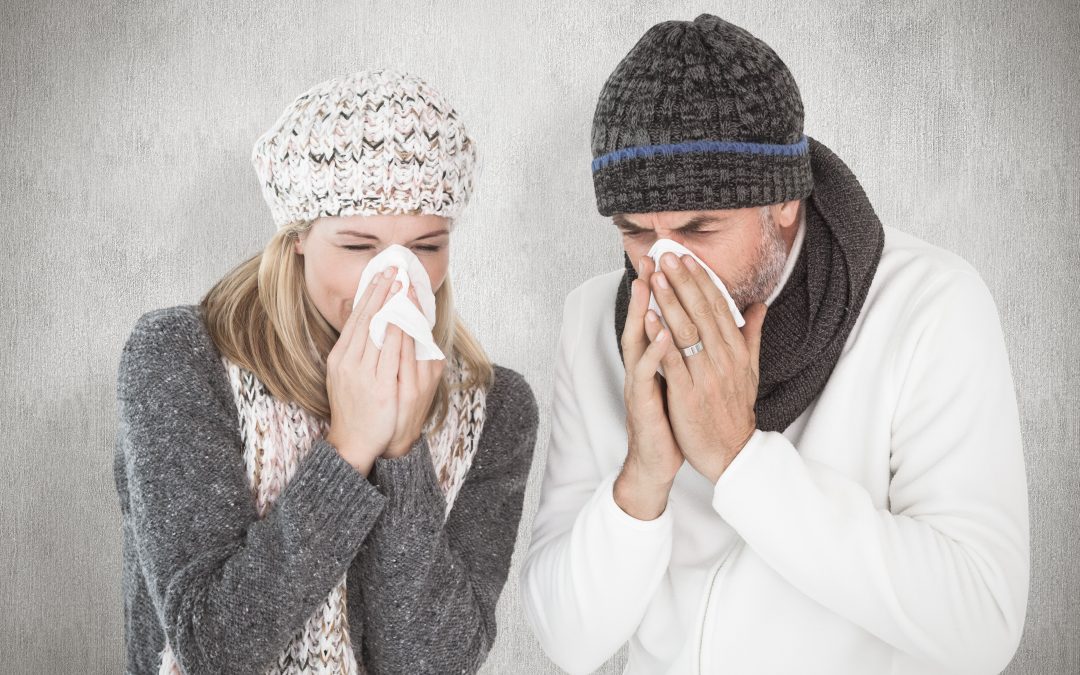Living in Naperville, where weather conditions often shift between humid summers and cold winters, can make some people more likely to develop fungal infections.
These infections appear when certain fungi on your skin or in the environment begin to grow excessively. Understanding why your body may be prone to fungal infections can help you take practical steps to prevent them and protect your skin.
Understanding Fungal Infections
Fungal infections are caused by microscopic organisms that live naturally on the skin, hair, and nails. Under normal circumstances, these fungi coexist harmlessly with your body.
However, when the skin becomes damp, warm, or damaged, they can multiply and lead to infections such as athlete’s foot, ringworm, or fungal rashes on the neck and body.
In Naperville, the humidity and temperature changes throughout the year can create ideal conditions for fungi to thrive. Sweating under layers of winter clothing or during outdoor summer activities can trap moisture on the skin. This environment helps fungi grow faster, especially on the neck, back, armpits, and feet.
If you’ve noticed recurring skin irritation or rashes, reading How to Get Rid of a Stuffy Nose Instantly can offer insight into how moisture and humidity affect body systems — just as they do your skin health.
Fungal Infections Affect Different Parts of the Body
Fungal infections can develop on almost any part of the body. The skin, scalp, nails, and even the mouth or groin areas are common sites where fungi thrive.
These infections often start as small, itchy patches that may become red or scaly over time. Fungi feed on dead skin cells and thrive in warm, moist environments.
Areas like the neck, underarms, and feet are especially vulnerable because they stay covered for long hours. Without proper care, the infection can spread quickly to nearby regions of the body.
1. Skin and Neck Infections
Fungal infections commonly begin on the skin, where warmth and sweat allow fungi to thrive. The neck, being exposed and often damp with perspiration, is one of the most frequent areas affected. Red, itchy, or ring-shaped rashes are early signs that require immediate attention.
2. Scalp and Hairline Issues
Infections on the scalp can lead to itchy, scaly patches and even hair thinning. Fungi grow easily when the scalp stays oily or when hair is not washed after sweating. Naperville’s humid weather increases the likelihood of scalp fungal growth, especially during the summer months.
3. Nail and Foot Infections
Toenail fungus and athlete’s foot are also common, particularly for people who wear shoes for long hours. These fungi thrive in dark, moist environments, such as inside socks and closed footwear. Once established, nail infections can be challenging to eliminate without proper antifungal treatment.
4. Internal Fungal Concerns
In people with weakened immunity, fungi can spread beyond the skin and affect the lungs or digestive system. Though rare, these infections can become serious and require immediate medical treatment. Regular check-ups at clinics such as Naperville Immediate Care can help detect these early.
People Are More Prone to Fungal Infections
Not everyone gets fungal infections easily. Some people’s bodies are naturally more prone to them due to their skin type, daily habits, or medical history. Understanding the reasons helps you take control of prevention.
1. Excessive Sweat and Moisture
If you sweat a lot or wear tight, non-breathable clothing, moisture stays on your skin longer. It is one of the leading causes of fungal growth. Residents of Naperville often experience this during warm, humid months when outdoor activity levels are high.
2. Weak or Compromised Immune System
A weak immune system cannot fight off fungi effectively. People with diabetes, stress, or chronic illnesses are more likely to get recurring fungal infections. Even overuse of antibiotics can weaken your body’s natural balance of bacteria, making it easier for fungi to multiply.
3. Poor Hygiene or Shared Personal Items
Sharing towels, razors, clothing, or gym gear can easily spread fungal spores. Keeping personal items clean and not sharing them is essential for prevention.
4. Hot and Humid Weather Conditions
The changing weather patterns in Naperville — especially warm, moist air — make it easy for fungi to survive on skin and surfaces. Sweat trapped under clothing can become a perfect breeding ground for infection.
To understand similar transmission patterns in bacterial infections, visit How Is Strep Throat Transmitted?
Common Areas Where Fungal Infections Develop
Certain body parts are more likely to experience fungal overgrowth because they remain moist or are covered for long periods.
- Feet – Often trapped in shoes and socks all day.
- Neck and shoulders – Prone to sweating during exercise or warm weather.
- Underarms and groin – Areas with less ventilation and higher moisture.
- Scalp and hairline – Where sweat and oil buildup can feed fungi.
Environmental Factors
The environment plays a significant role in the spread of fungal infections. Warm, humid conditions create the perfect environment for fungi to grow.
Sweat trapped under clothing, damp shoes, or unventilated spaces can help fungi multiply. Even indoor environments can contribute.
Using heating systems during cold months can make the skin dry while trapping warmth in layers of clothing. Public areas like gyms, pools, and locker rooms also increase the risk when surfaces stay wet for long periods.
1. Humidity and Seasonal Moisture
Naperville’s humid summers create ideal conditions for fungal growth. Prolonged sweating after outdoor activity or exercise can lead to skin dampness, especially around the neck, back, and underarms.
2. Indoor Heating During Winters
In winter, indoor heating systems can dry out the air but trap warmth in clothing layers. This combination causes sweating under thick clothes, providing moisture for fungi to flourish unnoticed.
3. Contaminated Surfaces and Shared Spaces
Public gyms, swimming pools, and locker rooms are familiar places where fungal spores linger. Walking barefoot or sharing benches and towels in these spaces can transfer fungi from one person to another.
4. Airborne and Soil-Based Fungi
Some fungal spores naturally live in soil and air, especially in garden areas and parks.
People who garden or work outdoors in Naperville might inhale or come into contact with these spores, leading to potential skin irritation or infection if hygiene is neglected.
Prevention and Lifestyle Tips
The best way to prevent fungal infections is to keep your skin dry, clean, and healthy. Consistent hygiene routines and mindful habits go a long way toward stopping fungal growth before it starts.
Practical steps include:
- Shower daily and dry your skin thoroughly, especially after exercise.
- Wear cotton or moisture-wicking clothing to reduce sweat buildup.
- Change socks and undergarments every day.
- Avoid sharing towels, razors, or gym equipment.
- Use antifungal powder or soap if you sweat excessively.
- Strengthen your immune system through balanced meals, sleep, and stress control.
If infections persist, professional evaluation is key. Naperville residents can visit nearby clinics, such as Naperville Immediate Care, for same-day appointments and accurate treatment.
Treatment Options for Recurring
If fungal infections keep recurring, your doctor may recommend topical antifungal creams or oral antifungal medications. These help stop the fungus from spreading and clear the infection completely.
For people with recurring infections, identifying underlying causes — such as diabetes or immune issues — is crucial for long-term control.
Doctors in Naperville may also suggest using prescription antifungal washes for prevention once the infection clears.
Patients should continue treatment for a few days after visible symptoms disappear to avoid relapse. For more information on safely managing infections, explore “What Makes Same-Day Medical Attention Essential for Managing Health Outcomes.”
Your Health and Fungal Susceptibility
Your overall health determines how easily you can get fungal infections. When the immune system is weak, it becomes harder for the body to control fungal growth.
People dealing with stress, diabetes, or certain medications often notice infections recurring more often. Nutritional habits and hygiene also play a big part.
Poor diet, lack of rest, and skipping basic skin care can make the body more prone to infections. Building stronger immunity and maintaining clean, dry skin can significantly reduce the risk.
1. Weakened Immune Response
If your immune system is weak, your body struggles to control fungal growth. Conditions such as diabetes, anemia, or chronic stress reduce your natural defenses against fungal infections.
2. Hormonal or Metabolic Imbalances
Changes in hormones — due to menopause, thyroid issues, or medication — can affect skin oil production and moisture levels, creating a favorable environment for fungi.
3. Long-Term Medication Use
People who frequently take antibiotics or steroids may experience an imbalance in their natural bacteria, allowing fungi to grow unchecked.
4. Nutritional Deficiencies
A lack of essential nutrients, such as vitamin D, zinc, and probiotics, can weaken the skin barrier and immune response. Eating a nutrient-rich diet strengthens resistance to recurring fungal issues.

Professional Treatments and Advanced Medical Options
Doctors treat fungal infections with antifungal creams, powders, or oral medications, depending on the severity of the illness. Early treatment helps prevent the disease from spreading to other parts of the body.
For stubborn or recurring infections, dermatologists may suggest more potent medications or modern treatments such as laser therapy. Consistent follow-up, proper hygiene, and completing the full course of medicine are essential for long-lasting relief.
1. Topical and Oral Antifungal Medications
Doctors usually start with antifungal creams like clotrimazole or terbinafine. If infections persist or spread, oral antifungal tablets are prescribed for better outcomes.
2. Laser and Light Therapy
Some dermatology clinics in Naperville now offer laser treatment for persistent fungal infections, especially in nails or deep skin layers. This method targets fungal cells without damaging healthy skin.
3. Preventive Skin Care Programs
For people with frequent fungal problems, doctors might recommend preventive plans that include antifungal washes, dietary changes, and skin moisture control.
4. Same-Day Medical Care for Early Control
Visiting a same-day medical center helps stop infections early, before they spread. Locations like Aurora Walk-In Immediate Care Medical Clinic offer fast diagnosis and prescriptions tailored to your condition.
Visit for Further Information:
- How Is Strep Throat Transmitted?
- What Makes Same-Day Medical Attention Essential for Managing Health Outcomes?
- Naperville Immediate Care
Trusted Health Resource:
For expert guidance on how fungi affect the skin and body, visit the Centers for Disease Control and Prevention (CDC) page on Fungal Diseases and Prevention. It provides practical prevention tips and updated treatment information.
FAQs
Why do I keep getting fungal infections?
Recurring infections occur when fungi persist on the skin after incomplete treatment or when moisture is trapped on the body.
Can the weather in Naperville make infections worse?
Yes. The area’s humid summers and layered winter clothing often trap sweat, which can encourage fungal growth.
Are fungal infections contagious?
Yes, they spread easily through skin contact or shared personal items like towels or clothing.
What foods can help prevent fungal infections?
A diet rich in vitamin C, probiotics, and zinc helps support the immune system and skin protection.
Do over-the-counter creams work?
Mild cases usually improve with OTC antifungal creams, but recurring or severe infections need a doctor’s prescription.
Can stress increase the risk of fungal infections?
Yes. Stress can weaken your immune system, making it easier for fungi to overgrow.
How long does it take to recover?
With proper treatment, most fungal infections clear within 1 to 3 weeks. Persistent cases may take longer.
Should I visit a doctor if symptoms return?
Yes. Recurrent infections require medical attention to prevent further spread and identify possible underlying causes.
Can children get fungal infections easily?
Yes. Kids who play outdoors or sweat heavily can develop skin infections quickly, especially during warm months.
How can I stop infections from coming back?
Keep your skin clean, dry, and well-ventilated, and follow your doctor’s treatment plan thoroughly.

